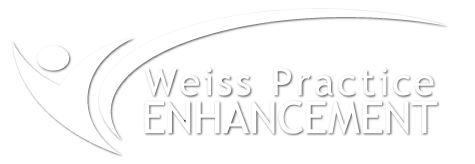Published in Dental Economics, Nov 2023
The dental assistant asks the hygienist, “Are those your instruments in the lab?” And that’s how the fight started.
In this article we’ll explore why ordinary conversations, questions, and comments can morph into difficult conversations wrought with drama, hurt feelings and charged words. We’ll discover why patients and team members can go berserk within a seemingly innocent interaction and, most importantly, we’ll share the tools to transform fights into courageous conversations.
Why Conversations Go South
The problem starts with the fact that every message has at least two components.
- What we literally say (the content)
- The feelings and intentions behind the content.
When we hear a message, we interpret the content, the intentions and feelings against our own biases and expectations. This may or may not align with what the person speaking intended.
For example, interpret this patient question: “How long is this going to take?”
Is the patient literally asking for a time frame because she has to pick up the kids from soccer or is she expressing her anxiety? If it’s the latter, then only responding to the content of her question won’t answer her real concern. But what if this patient is chronically late to her appointments causing back-ups? How would this context affect your interpretation of her motives and your response?
The Problem with Intentions
My favorite quote is this: “We judge ourselves by our intentions; we judge others by their actions.”
We believe we act from good intentions. In fact, we justify much of our own behavior by declaring we meant well, even if the results weren’t good. On the other hand, we aren’t as charitable with others; when we get hurt, we assume the other person had cruel intentions. An apology (“I didn’t mean to hurt you”) usually isn’t satisfying.
During difficult conversations, we spend considerable time parsing intentions, but it’s really beside the point. Intentions aren’t as important as interpretations. Let’s examine how this plays out with the question, “Are those your instruments in the lab?” Why would that “innocuous” question lead to a knock-down fight?
The hygienist doesn’t interpret this as a genuine question, but as a judgment. She thinks she’s hearing, “You’re an over-paid diva and I’m not going to sterilize your instruments again!” The hygienist responds defensively based on this assumption. And the war of words is on.
Fueling the Fire
The chief reason regular conversations go nuclear is because we think our identify is at stake. We interpret the other person’s communication as an indictment about our worth, competence and likeability.
The dental assistant construes the dirty instruments as symbolic of how little the other staff regard her. She fears she’s seen as the practice’s under-valued maid. The hygienist is frustrated because she sees herself as being unsupported when she’s doing an essential job that brings in production.
They’re both angry not because they’re talking about dirty instruments; but because they believe their value is being questioned.
Two Essential Questions
The initial step out of this quagmire is to engage in honest self-questioning.
- First, ask yourself if this is a fight about an objective issue or really about your identity. Is your entire worth and self-esteem really at stake here? Is it possible that your ego is inflaming this situation out of proportion?
- Next, identify your contribution to this situation. What did you do or say, even inadvertently, that led to this difficult situation? Since it’s rare that one is a completely innocent victim of an evil colleague, take an honest self-accounting about how your actions, attitudes and communication may have been interpreted. This is not a Judge Judy show; there’s no benefit in declaring that you’re only 30% accountable because the other person is 70% accountable.
The truth is you’re 100% accountable for your own actions and you need to fully acknowledge your contribution.
How to Have a Courageous Conversation
There has never been a great dialogue, in the history of mankind, which begins: “I’m completely innocent but YOU totally screwed up.” Therefore, the key ingredient in a courageous conversation is acknowledging your contribution. That’s why it’s called a COURAGEOUS conversation.
Courageous Conversation Formula:
- Begin by describing your contribution: the assumptions, misguided intentions, and interpretations that led to this conflict. “When I saw the instruments piled in the lab, I assumed you expected me to do them for you. I felt frustrated and disrespected because I don’t want to be taken for granted. I know I took that out on you.”
- Describe your hopes for the relationship: how you would like to work with the person in the future. “I would like to have a working relationship where we respect each other and communicate easily.”
- Your commitments: What you will do so this situation doesn’t reoccur. “From now on, I will ask if you need me to do your instruments and if I can, I will.”
- What you want from the other person while being open to negotiation. “And I would like you to ask for my help before 2:00pm and to thank me when I’m able to assist. How would that work for you?”
Courageous conversations are successful when both parties are able to let go of their ego needs to be right about the past and focus instead on what they need to do differently in the future. When this happens, the relationship deepens and matures.




